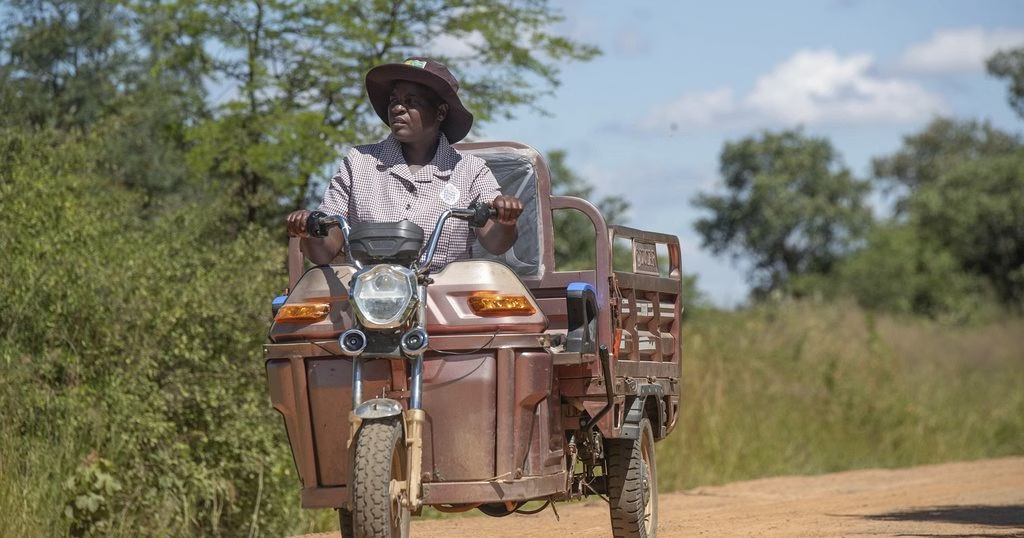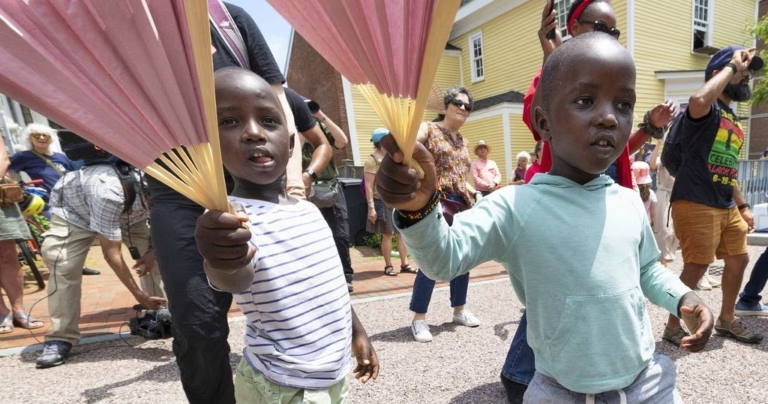
In many rural parts of sub-Saharan Africa, women have long been barred from mainstream economic activities like operating public transportation. However, three-wheeled vehicles powered by renewable energy are changing this. They are offering women financial independence and a new sense of importance. “My husband now depends on me to cover most household expenses, including school fees for our children and buying furniture. Previously, I wasn’t able to do this, but thanks to this tricycle, I can now contribute and help,” says Bhobho.
Dubbed “Hamba,” meaning “go” in Ndebele, these tricycles are powered by solar-charged lithium-ion batteries. Mobility for Africa, a local startup, launched the project in 2019 by leasing the vehicles to women’s groups for $15 per month. These women, like Bhobho, can now own them through a lease-to-purchase plan. Bhobho now owns land, has opened a small grocery store, is paying for a car, and has transferred her children from an underfunded public school to a well-equipped private school. She makes up to $300 per month, which is comparable to the salaries of government workers like teachers. Apart from her economic gains, she has gained self-confidence. “Even my husband and in-laws have more respect for me now. Nobody used to listen to me, but now I have a say when important decisions are made,” says this mother of three.
In Zimbabwe, the lives of many women have undergone a significant transformation, even for those who don’t own tricycles but use them for daily chores. The days of trekking long distances carrying firewood, buckets of water, or heavy farm produce are over. These tricycles can navigate narrow paths inaccessible to cars, reaching remote homes and vegetable gardens. The cost-effectiveness makes them accessible to locals.
Hilda Takadini, a tomato farmer, says her business has seen significant growth since she began using Bhobho’s transportation services. Previously, she would leave home at 3 a.m., using an ox-drawn cart to travel 18 kilometers (11 miles) to the market. Often, she would arrive too late or not at all, resulting in her tomatoes spoiling. “In the past, transporting our produce to the market was a nightmare; we would wake up at 3 a.m. and travel a longer distance using an ox-drawn cart. But now, it is much easier as we can reach the market on time,” says the 34-year-old mother of six. In Wedza, only women own and operate these tricycles. They receive training in safe driving skills, and exchanging a depleted lithium battery for a fully recharged one after about 100 kilometers (about 70 miles) costs $1. According to Carlin Thandi Ngandu, the community engagement coordinator for Mobility for Africa, 300 women in Zimbabwe participate in the program, with a goal of ensuring that 70% of the beneficiaries are women.
“We are providing rural communities with affordable transportation options, especially for women,” says Ngandu. Most women spend numerous hours attempting to reach markets, hospitals, and water sources, so the tricycle has greatly improved last-mile mobility. Many women couldn’t reach the market on time or afford the transportation costs needed to rent a vehicle to get there.
The tricycles are transforming healthcare access, especially for women and children. Josephine Nyevhe, a volunteer community health worker, uses her tricycle to bring medical services closer to rural families. After meeting a group of mothers with children by the roadside, Nyevhe hangs a weighing scale on a tree branch to check the children’s weights. Her tricycle often serves as a village ambulance. “The other day, I received a call to assist a pregnant woman. I’m there to respond to emergencies, so on that day, I used my Hamba tricycle to rush her to the clinic where she received help,” she says.
At the Wedza shopping center, nearly a dozen women line up with their tricycles, which can carry loads of up to 450 kilograms (nearly 1,000 pounds) and have a top speed of 60 kmph (37 mph), waiting for customers. They transport passengers, patients heading to hospitals, and people carrying building materials like bricks, groceries, and firewood. However, the women face challenges such as rough terrain aggravated by recent rains and some men resistant to seeing women lead in traditionally male-dominated spaces, Bhobho says.
Source: http://www.africanews.com/2025/03/22/electric-tricycles-empower-women-in-rural-zimbabwe/






